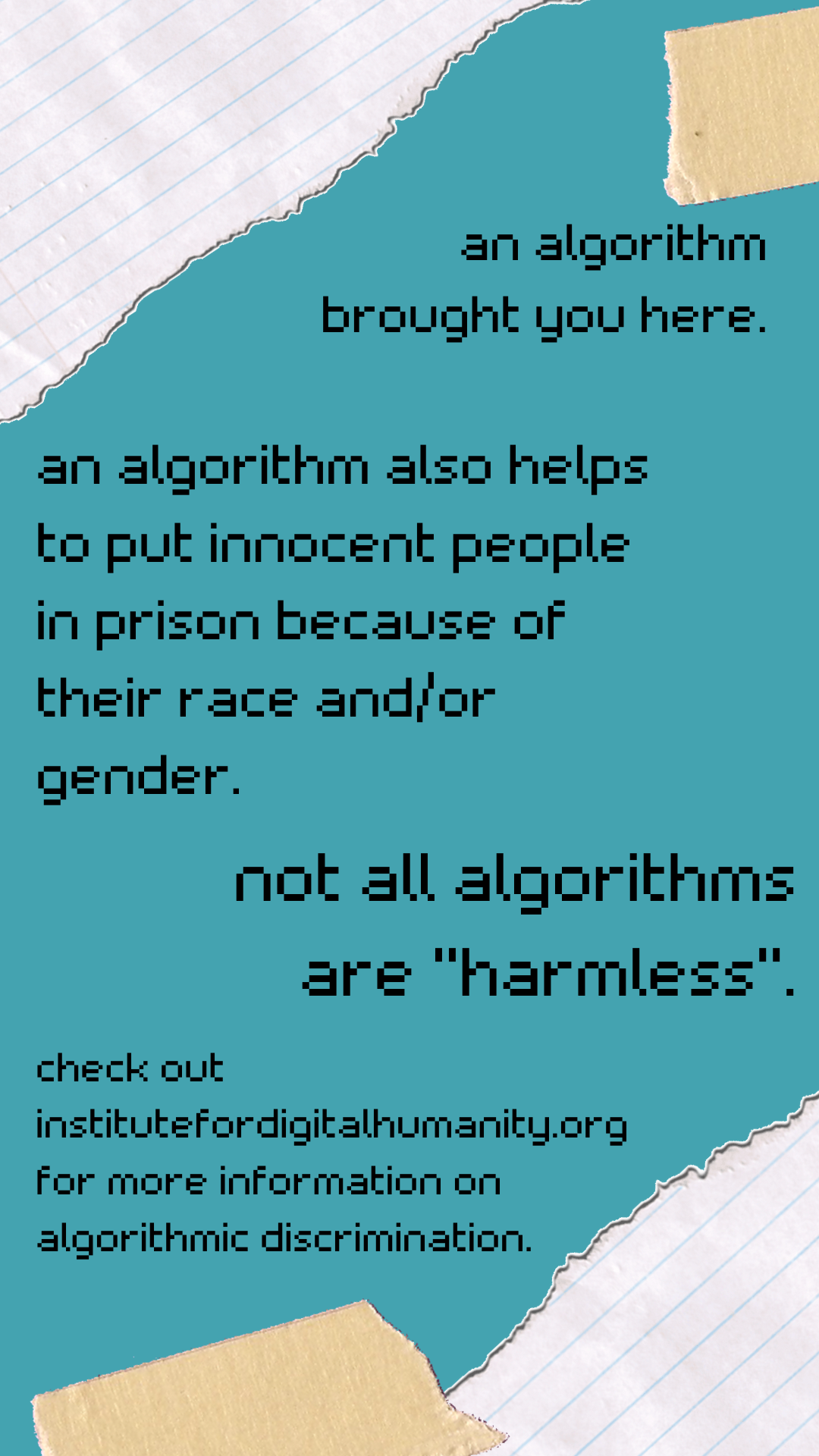“Criminal Conviction By Algorithms are Ruining Innocent Lives.” Op-ed. With Thomas Freeman and Elizabeth Otto. Omaha World-Herald. August 29, 2021.


IDH VICTORIES: PREDICITIVE POLICING
PREDICITIVE POLICING HARMS
Algorithms and AI programmed using historic data -- and protected identity categories -- may direct police to target the same communities they have harassed in the past.
Predictive Policing In Chicago: Targeting Innocents?
The 4th amendment protects individuals from unreasonable searches and seizures and cases of predictive policing will have significant influence on these rights for three key reasons.
In Chicago, police have tried to curb gun violence by using an algorithm called the Strategic Subject list or S.S.L. The algorithm was developed by Illinois Institute of Technology in 2013 in an attempt to maximize proficiency for the limited police resources.
However, recent research and data suggest that the S.S.L. algorithm has been a tool for the Chicago police department police departments across the country to target individuals who have not yet committed a crime.
#NeighborsNotNumbers victories

We're sitting on 10 years -- and 2 TB -- of community education materials and proven strategies
for lawyers, advocates, teachers, artists, programmers, policymakers, citizens, and students.
INCLUDING THE PAGE YOU ARE LOOKING AT. Give us a hand if you can














